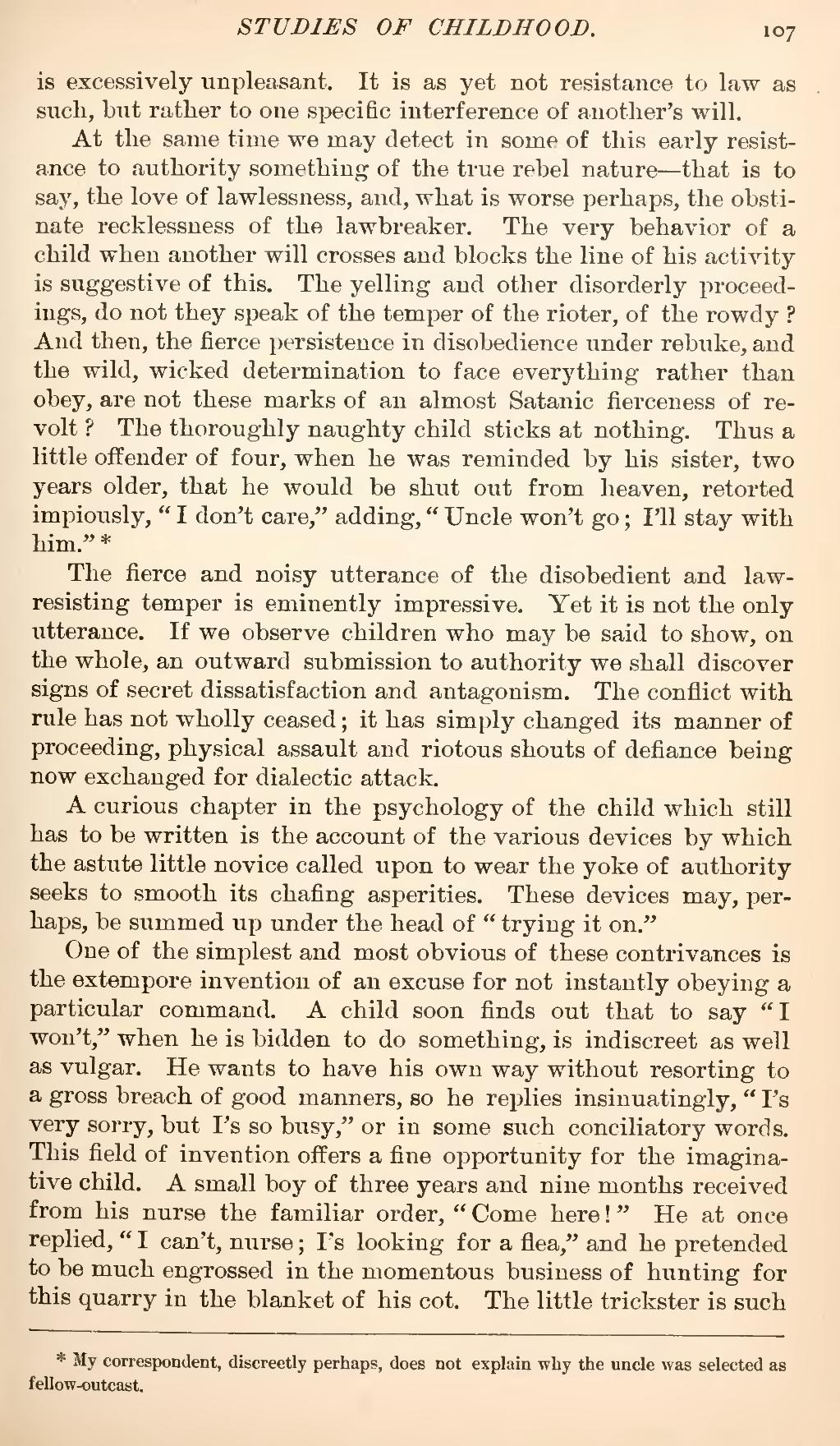is excessively unpleasant. It is as yet not resistance to law as such, but rather to one specific interference of another's will.
At the same time we may detect in some of this early resistance to authority something of the true rebel nature—that is to say, the love of lawlessness, and, what is worse perhaps, the obstinate recklessness of the lawbreaker. The very behavior of a child when another will crosses and blocks the line of his activity is suggestive of this. The yelling and other disorderly proceedings, do not they speak of the temper of the rioter, of the rowdy? And then, the fierce persistence in disobedience under rebuke, and the wild, wicked determination to face everything rather than obey, are not these marks of an almost Satanic fierceness of revolt? The thoroughly naughty child sticks at nothing. Thus a little offender of four, when he was reminded by his sister, two years older, that he would be shut out from heaven, retorted impiously, "I don't care," adding, "Uncle won't go; I'll stay with him."[1]
The fierce and noisy utterance of the disobedient and law-resisting temper is eminently impressive. Yet it is not the only utterance. If we observe children who may be said to show, on the whole, an outward submission to authority we shall discover signs of secret dissatisfaction and antagonism. The conflict with rule has not wholly ceased; it has simply changed its manner of proceeding, physical assault and riotous shouts of defiance being now exchanged for dialectic attack.
A curious chapter in the psychology of the child which still has to be written is the account of the various devices by which the astute little novice called upon to wear the yoke of authority seeks to smooth its chafing asperities. These devices may, perhaps, be summed up under the head of "trying it on."
One of the simplest and most obvious of these contrivances is the extempore invention of an excuse for not instantly obeying a particular command. A child soon finds out that to say "I won't," when he is bidden to do something, is indiscreet as well as vulgar. He wants to have his own way without resorting to a gross breach of good manners, so he replies insinuatingly, "I's very sorry, but I's so busy," or in some such conciliatory words. This field of invention offers a fine opportunity for the imaginative child. A small boy of three years and nine months received from his nurse the familiar order, "Come here!" He at once replied, "I can't, nurse; I's looking for a flea," and he pretended to be much engrossed in the momentous business of hunting for this quarry in the blanket of his cot. The little trickster is such
- ↑ My correspondent, discreetly perhaps, does not explain why the uncle was selected as fellow-outcast.

